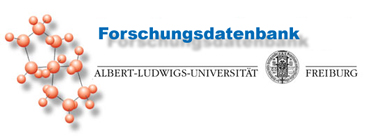| [Zurück zum Forschungsbericht] |
 |

Schlaf und Schlaganfall
Projektbeschreibung:We seek ethical approval for a project on daytime sleepiness in persons who had a stroke. Sleepiness is a very important issue for everyday function. For example, sleepy people do less well in cognitive tasks, have poorer attention, and are less active. They further have a tendency to fall asleep in quiet or monotone situations which poses a health and safety risk. Understanding sleepiness is hence an important topic of research. Daytime sleepiness is poorly studied in chronic stroke except for patients who also present with obstructive sleep apnea (OSA), an extreme form of snoring. These persons are very sleepy during the day and their sleepiness is addressed indirectly through the OSA treatment. However, little is known about sleepiness as a neurophysiological phenomenon. Research in healthy persons shows that there are particular frequencies in the electroencephalogram (EEG) that appear when a person finds it difficult to stay awake. In a pilot study conducted in the UK we have used the EEG method to study these ‘sleepiness frequencies’ in persons with chronic stroke. We found high levels of ‘sleepiness frequencies’ during the day suggesting that patients found it more difficult to stay awake (high sleep propensity). However, the patients’ own sleepiness rating were not different from that of control persons, suggesting that they did not feel sleepy. This is an interesting but puzzling set of findings that can be interpreted in two ways. It is possible that patients are really sleepy during the day but don’t notice their sleepiness. Or it might be that the brainwave indicators known from control participants are a poor measure of sleepiness in these patients. To examine these interpretations further we propose the present study which combines direct measures of sleep propensity through the multiple sleep latency test (MSLT) with subjective and EEG-based measures. To be able to link the present study with our previous data we intend to recruit patients with chronic motor deficits after stroke who do not suffer from OSA. Patient data will be compared with data from age-matched controls. Participants will spend two nights in the sleep laboratory to obtain two nocturnal sleep EEGs. Daytime measures of the MSLT, wake-EEG data and a vigilance task will be gathered on day 3. This protocol will tell us how the tendency to fall asleep during the day, the brainwaive indicators of sleepiness, and the subjective perception of sleepiness relate to each other in patients with stroke.Projektlaufzeit:
Ansprechpartner: Kuhn, M
Email: marion.kuhn@uniklinik-freiburg.de
Projektbeginn: 01.07.2012Projektleitung:
Projektende: 31.12.2015
Nissen, C, Riemann, D, Sterr, AKooperationspartner
Albert-Ludwigs-Universität Freiburg
Zentrum für Psychische Erkrankungen (Department)
Klinik für Psychiatrie und Psychotherapie
Hauptstrasse 5
79104 Freiburg
Telefon: +49 / 761 / 270-6501 / -6502
Fax: +49 / 761 / 270-6619
http://www.uniklinik-freiburg.de/psych/live/
Prof. Dr. A. Sterr, University of Surrey, UKFinanzierung:
- Hausmittel
Aktueller Forschungsbericht